
46th Midwest
39th Great Lakes
Joint Regional ACS Meeting
Special Events
The 46th Midwest/39th Great Lakes Joint Regional Meeting of the American Chemical Society will be held in St Louis, October 19–22, 2011, at the Sheraton Westport Chalet Hotel. As a Joint Meeting, it will feature the annual special events of both hosting sections, as well as the events planned specifically for the 2011 meeting.
Technical program
Undergrad program
High school teacher program
Special events/awards/nominations »
Exposition & sponsorships
Getting here/Venue
Area activities
Awards
Eligibility criteria and nomination procedures are specified in the nominating materials, which are linked in each award. The meeting organizers encourage you to nominate deserving individuals for these awards.
- ACS Division of Chemical Education Award for Excellence in High School Teaching
To recognize, encourage, and stimulate outstanding teachers of high school chemistry. One award each for the Midwest Region and the Great Lakes Region. The John E Bauman citation applies only to the Midwest Region. The nomination form is a fillable/saveable pdf file that can be submitted by email along with supporting letters. Nominations closed on September 10.
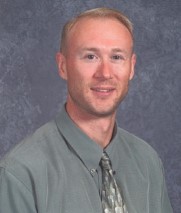
Greg Cooper, 2011 Midwest Region awardee for Excellence in High School Teaching
The winner of the 2011 Award for Excellence in High School Teaching (Midwest), in honor of John E Bauman, Jr, is Greg Cooper, Lincoln Southwest High School, Lincoln, Nebraska.
Greg earned his BS in Education from the University of Nebraska–Lincoln. His first teaching position was in Columbus, NE, where he taught eighth-grade science. Greg moved back to Lincoln and took a position teaching Chemistry at Lincoln Southeast High School. While working at Southeast, Greg started working on his Master’s degree and received his Master’s in Education from UNL. Now at Lincoln Southwest High School, Greg teaches Honors Chem, Honors Chem II, and Forensic Science, and is assistant coach for the Science Olympiad team. He is in his sixteenth year as an educator.
Greg has two children and three stepchildren. Greg got married last year, appropriately, on Mole Day. He served twenty-two years with the Nebraska Air National Guard.
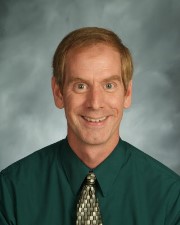
Jeff Christopherson, 2011 Great Lakes Region awardee for Excellence in High School Teaching
The winner of the 2011 Award for Excellence in High School Teaching (Great Lakes) is Jeff Christopherson, Normal Community High School, Normal, Illinois.
Jeff holds a BS (with honors) and MS degree in Chemistry from Illinois State University. He has worked as a research chemist for The Upjohn Company, but found he enjoyed interacting with students and teaching more than real work. Since 1990, he has taught chemistry and honors chemistry at Normal Community High School in Normal, Illinois, as well as Biology, Earth Science, and Physical Science. For several years now, his summers have been spent teaching 100 level chemistry classes at Illinois State University.
Jeff has developed a web based curriculum to enhance the students’ classroom experience. He has also developed an Instructional Support CD containing thousands of pages of highly animated PowerPoints and hundreds of worksheets with keys (showing problems worked out in equation editor). The CD is available at no charge through his website. His website has enabled him to share and interact with teachers around the world, and he enjoys mentoring new chemistry teachers.
Jeff tries to bring a professional attitude to his students about the dangers of chemicals and how to handle them safely. His teaching style is a volatile mix of high enthusiasm, dry humor, and storytelling to explain chemical concepts. Students will rarely say “I'm bored” in his classroom. They work hard, but they have fun doing it.
Jeff has three children, 3rd, 10th, and 12th graders, all active in sports and numerous other activities. His wife, Indu, teaches chemistry at Illinois State University.
- E Ann Nalley Award for Volunteer Service
To recognize the volunteer efforts of individuals who have served the American Chemical Society, contributing significantly to the goals and objectives of the Society through their regional activities. One award each for the Midwest Region and the Great Lakes Region. The nomination form is a fillable/saveable pdf file that can be submitted by email along with supporting letters. Nominations closed September 1.
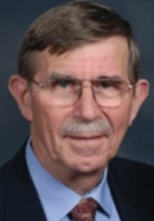
D Paul Rillema, 2011 Midwest Region Nalley Awardee
The winner of the Midwest Region Nalley Award is D Paul Rillema of Wichita State University and the Wichita Local Section.
He received a BA degree in chemistry from Hope College in 1965 and his PhD degree in chemistry from Michigan State University in 1969 working under the direction of Carl H Brubaker. He studied as a postdoctoral researcher under the direction of John F Endicott at Wayne State University, 1969-72, and then with Fred Basolo, 1972-73. From 1973 to 1994, he was a faculty member at the University of North Carolina–Charlotte, where he was chair of the department for six years before transferring to Wichita State University where he assumed a similar position for eight years.
His past ACS service includes • executive committee member and 1988 chair of the Carolina Piedmont section • vice-chair of the Program Committee for the 1983 Southeast Regional Meeting in Charlotte • Program Committee member of the Division of Chemical Education • chair of the Program Committee and member of the executive committee and 2000 chair of the Wichita local section • session organizer for the Division of Chemical Education at the San Francisco National Meeting in March 2000 • co-organizer of the Division of Chemical Education program for the Washington National Meeting (2000), the Philadelphia National Meeting (2004) and the Philadelphia National Meeting (2008) • editor of the Division of Chemical Education newsletter, 2001-2011 • program chair for the 2010 Midwest Regional Meeting in Wichita, KS.
Currently he serves as councilor and executive committee member of the Wichita local section, as a Program Committee member of the Chemical Education Division, as an executive committee member of the Multidisciplinary Program Planning Group (MPPG) of the national ACS, a a member of the executive committee of the national ACS Divisional Activities Committee (DAC), as co-chair of the Innovative Projects subcommittee of the DAC, as a liaison to the ACS Graduate Education Advisory Board, and as co-organizer of the Division of Chemical Education program for the Fall 2012 National Meeting in Philadelphia.

Lydia Hines, 2011 Great Lakes Region Nalley Awardee
The winner of the Great Lakes Region Nalley Award is Lydia Hines of Western Michigan University and the Kalamazoo Section.
Originally from Cyprus, Lydia received a BS degree from Aurora College (now University) in 1967, and the MS and PhD degrees in Organic Chemistry from the University of Illinois at Urbana-Champaign in 1971 under the direction of Dr Douglas E Applequist. From 1971 to 1975, she was a research chemist at Mead Johnson (Bristol-Myers) in Evansville, IN, and from 1975 to 1985 was employed at The Upjohn Company in Kalamazoo, MI, first as a Patent Liaison Specialist and then as a Technical Intelligence Scientist. In 1985, she resigned to raise her family—two daughters, one now a managing editor at a small newspaper and the other a violinist, and a son, now an aero/mechanical engineering PhD student—and to provide care at home for her mother, an Alzheimer’s patient. Her service to her Local Section and to the National American Chemical Society remained uninterrupted through those years.
From 2004 to 2008 she had a teaching position at Kalamazoo Valley Community, and since 2006 she has served as part-time faculty in the Chemistry department at Western Michigan University.
Her ACS Local Section service began in 1974-75, as Publicity Committee Chair of the Indiana-Kentucky Border Section. Since her arrival in Kalamazoo in 1975, she has served as Chair-elect and Program Chair of the Kalamazoo Section 1980; Chair 1981; Alternate Councilor 1978-1983; chair of the Publicity Committee 1986-2001; pre-high-school science education coordinator 1988-2001; member of the Section’s Awards Committee 1991-2001 and its chair in 1992 and again since 2008; chair of the Chemistry Promotion Committee 1991-2001. She has served as coordinator for the Chemists Celebrate Earth Day event since its inception in 2004, and as National Chemistry Week coordinator since 1988. She has been a Councilor and a member of the Executive Committee of the Kalamazoo Section since 1984.
In 1984, she had the privilege of serving as General Chair of the Joint Great Lakes-Central Regional Meeting for which the Kalamazoo Section was host, and since that year has been the Kalamazoo Section representative to the Great Lakes Region Steering Committee.
As Councilor, she most recently (2011) completed service for her allowed terms on the Committee on Constitution and Bylaws and on the Committee on Community Activities. At the Fall 2011 ACS Meeting in Denver, she was elected to the Committee on Nominations and Elections. She previously served full terms on the Committee on Committees; on the Committee on Nominations and Elections, serving as Secretary in 1995; on the Committee on Copyrights, and as Chair in 1990-1992; and on the Women Chemists Committee, serving on its Garvan Medal Canvassing Committee and as editor of its newsletter, Women Chemists, 1984-87.
- Stanley C Israel Award for Advancing Diversity in the Chemical Sciences
To recognize individuals and/or institutions that have advanced diversity in the chemical sciences and significantly stimulated or fostered activities that promote inclusiveness. One award each for the Midwest Region and the Great Lakes Region. Nominate online by August 1.
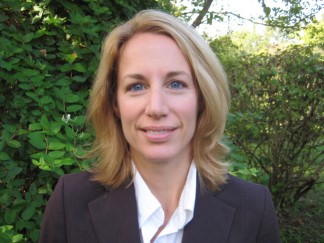
Alexa Serfis, 2011 Stanley C Israel Awardee for the Midwest Region
The winner of the 2011 Stanley C Israel Award in the Midwest Region is Alexa Serfis of Saint Louis University.
Alexa Serfis is Professor and Associate Chair of Chemistry at Saint Louis University. She has advised pre-professional undergraduates on their educational options, as well as mentoring any number of undergraduate students and research assistants.
In 2001, she led the Student Affiliates of the ACS (SA-ACS) group at SLU to start a mentoring program for Gateway Middle School (a predominantly African-American St Louis City school). The students work on high-quality scientific projects which are presented as science fair projects and orally at the Junior Academy of Sciences. The SA-ACS students serve as advisors to the middle school students.
In 2007 and again in 2010, Dr Serfis developed a Senior Girl Scout Interest Project around chemistry. The first program was centered around spectroscopy and included hands-on use of a UV-Vis spectrometer to investigate properties of sunscreens. The second program included activities focused on forensic science and the use of chemical methods to characterize physical evidence. In each case, the Girl Scouts took the indicator home, and in order to earn the badge used their new knowledge to conduct an outreach activity at a local elementary school.
Dr Serfis has hosted a Project SEED student in her laboratory, and is currently helping to start an internship program and bring another round of students to Saint Louis University next summer. She is a regular volunteer for the ACS local section with the Boy Scout Chemistry Merit Badge clinic and has twice chaired outreach activities for National Chemistry Week.

The Chemistry and Physics Department at Chicago State University wins the Stanley C Israel Award in the Great Lakes Region. Check out their website here.
The winner of the 2011 Stanley C Israel Award in the Great Lakes Region is the Chemistry and Physics Department of Chicago State University.
The Chemistry and Physics Department of Chicago State University (CSU) has been awarded the Stanley C Israel Award for their work in diversifying the chemical sciences and for community outreach. CSU is a regional comprehensive university located on the far south side of Chicago, IL. Approximately one million people of color live in its service area. Annually, over 7,000 students attend CSU and approximately 85% are African-American.
The department is committed to excellence in undergraduate education and awards ACS approved BS degrees in four areas of chemistry. It is consistently ranked among the top 15 schools in the number of degrees awarded annually to African-Americans and, since 2005, has graduated 66 chemistry majors, 64 of who come from groups underrepresented in the sciences.
CSU has a vibrant undergraduate research program that engages not only their own students but also students from local community colleges. CSU has supported well over 100 undergraduates during the summer and academic year. CSU students have given 45 presentations at local, regional, and national conferences; and have co-authored 28 peer-reviewed publications with CSU faculty.
For the past 15 years, CSU has maintained the “Chicago Chemistry Van’, a mobile teaching resource that delivers science experiments to 43 regional high schools. Many of these schools are part of the Chicago Public School system, approximately 90% of whose students are non-white, and other suburban schools serving predominantly African-American and economically disadvantaged school districts. They also host an annual “Science Fair Central” event to help Chicago Public School students prepare for school and city science fairs. In recent years, annual student attendance at this event has been approximately 300.
- 67th Midwest Award
Established by the St Louis Section in 1944 to publicly recognize outstanding achievements in chemistry in the Midwest region; the history of the award is shown here. Nominations for the Midwest Award closed on March 31.
The Midwest Award festivities will be celebrated on Thursday, October 20: the Midwest Award Symposium from 3 to 5 pm, the Midwest Award Address from 5 to 6 pm, both in the Zurich Room, followed by the Midwest Award Reception from 6 to 7 pm in the Matterhorn Room.

Xiao Cheng Zeng, 2011 Midwest Awardee
The winner of the 2011 Midwest Award is Xiao Cheng Zeng. Xiao Cheng Zeng, Ameritas Distinguished University Professor of Chemistry at University of Nebraska–Lincoln, is internationally known for his computational studies of new phases of ice, gold, and silicon clusters, and nanostructured materials. Zeng is a fellow of the American Association for the Advancement of Science, and a fellow of the American Physical Society. He has also held a John Simon Guggenheim fellowship and a fellowship from the Japan Society for the Promotion of Science. He has received numerous awards and honors, including University of Nebraska Outstanding Research and Creative Activity Award, the Sigma Xi Outstanding Young Scientist Award, and an inaugural Willa Cather professorship at UNL.
Zeng has published 271 scientific papers in refereed journals including two in Nature, nine in Proceedings of the National Academy of Sciences USA, and twenty-four in Journal of the American Chemical Society. The most significant scientific discoveries from the Zeng group include the two-dimensional hexagonal bilayer ice (“Nebraska ice”), two-dimensional ice clathrate, multi-walled helical ice, one-dimensional ferroelectric ice, and hollow cages of gold. These findings were featured in the New York Times, Omaha World-Herald, Lincoln Journal-Star, Royal Society of Chemistry, American Scientist magazine, New Scientist magazine, and National Public Radio.
A faculty member at UNL since 1993, Zeng has supervised 20 graduate students (16 PhD and 4 MS) and 19 postdoctoral fellows. Eight former PhD graduate students in the Zeng group received Outstanding Graduate Research Assistant awards from University of Nebraska, College of Arts & Science, and/or Department of Chemistry. Zeng received his bachelor’s degree from Peking University in 1984 and his PhD from the Ohio State University in 1989. He pursued postdoctoral research at University of Chicago and UCLA from 1989 to 1993.
Events
Some of these events are included with registration, while others have additional costs and require preregistration. Your choice of events and menu selections can be indicated when you register for the meeting.
- SciMix
- Wednesday, October 19th, 7–9 pm, in the Versailles foyer, with special SciMix poster session in the Versailles Ballroom
- Diversity Luncheon
Thursday, October 20th, 12–1:30 pm, in the Matterhorn Room
Local ACS members may attend the Diversity Luncheon and/or the Awards Banquet without registering for general attendance. Fill out the event registration form (be sure to make your menu selection) and submit it as instructed.featuring ACS President Nancy Jackson on Leadership and Diversity, addressing the issues that diversity plays in leadership: expectations, stereotypes, and the strengths and challenges that face leaders from diverse backgrounds.
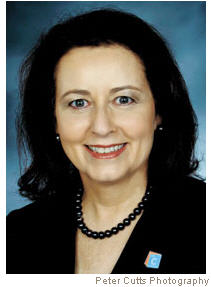
Nancy B Jackson is manager of the International Chemical Threat Reduction Department in the Global Security Center at Sandia National Laboratories, which assists the US State Department and other federal agencies on issues of international chemical security. Dr Jackson developed the Chemical Security Engagement Program, an international program to raise awareness of chemical safety and security among chemical professionals and to enable the practice of safety and security in the research, teaching, and commerce of chemicals.
Previously, Dr Jackson was deputy director of Sandia’s International Security Program, where she assisted the director in creating technology-based solutions to reduce the threat of weapons of mass destruction and terrorism. During the past four years, Dr Jackson was responsible for leading the Laboratory Directed Research and Development program for Global Security, which requires identifying and overseeing the research program in support of global security. Prior to her positions in Global Security, Dr Jackson was involved in research and development at Sandia as a principal investigator and a manager. Primarily her research was in heterogeneous catalysis with an emphasis on energy applications. Later work involved chemical imaging with a wide variety of applications from biological systems to defense problems.
Dr Jackson is a National Affiliate of the National Academies; she has served on several boards and chaired studies. Dr Jackson is a Fellow of the American Association for the Advancement of Science and was recipient of the 2005 American Indian Science and Engineering Society Professional of the Year Award. Dr Jackson was a member of the Board of Trustees of Rocky Mountain College and is a Research Associate Professor at the Chemical and Nuclear Engineering Department of the University of New Mexico.
Dr Jackson earned a BS degree in chemistry from George Washington University and won their Distinguished Alumni Achievement Award in 2005. Her PhD is in chemical engineering from the University of Texas at Austin. She is serving in the ACS presidential succession, 2010–2012.
- YCC Happy Hour
 Thursday, October 20th, 5:30–6:30 pm, at Pujols 5 Westport Grill in Westport Plaza. Meet YCCers from farflung sections within the Midwest and Great Lakes ACS regions. Appetizers and non-alcoholic beverages provided by St Louis YCC.
Thursday, October 20th, 5:30–6:30 pm, at Pujols 5 Westport Grill in Westport Plaza. Meet YCCers from farflung sections within the Midwest and Great Lakes ACS regions. Appetizers and non-alcoholic beverages provided by St Louis YCC.- Awards Reception
- Thursday, October 20th, 6–7 pm, in the Matterhorn Room
- Awards Banquet
- Thursday, October 20th, 7–9 pm, in the Matterhorn Room
Local ACS members may attend the Diversity Luncheon and/or the Awards Banquet without registering for general attendance. Fill out the event registration form (be sure to make your menu selection) and submit it as instructed. - ACS Governance Luncheon: Role of Chemistry in Society
Friday, October 21st, 12–1:30 pm, in the Matterhorn Room
The event will feature a distinguished panel led by ACS President-elect Bassam Z Shakhashiri, and featuring Chancellor Mark Wrighton of Washington University in Saint Louis, Chancellor Vaughn Vandegrift of Southern Illinois University–Edwardsville, and Dr Susan Fitzpatrick, Vice President of the James S McDonnell Foundation.
Discussion notes:
We live in the most advanced scientific and technological society in history. New discoveries have led to improvements and benefits in our daily lives, but also to new societal problems. It is through chemistry that we can make major contributions to improve the quality of life in America and to advance the human condition around the globe. Chemistry is the key to eradicating disease and reducing poverty. Chemical research and technology can provide clean water and nutritious food, meet energy demands, and help lead to sustainable development everywhere.
Chemistry brings a wide range of goods and functions to everyone and thus is vital to our democracy. Science literacy is necessary for the democratic process to work. By science literacy I mean an appreciation of science, an understanding of the benefits of technology and the potential rewards and risks associated with advances in both, as well as recognition of what science is capable of achieving and what it cannot accomplish. Science literacy enlightens and enables people to make informed choices; to be skeptical; to reject shams, quackery, and unproven conjecture; and to avoid being bamboozled into making foolish decisions where matters of science and technology are concerned. Science literacy is for everyone-chemists, artists, humanists, all professionals, the general public, youth and adults alike. The level of science literacy in any society is a measure of what it values and its resolve to put these values into practice.
ACS President-elect
Bassam Shakhashiri
Washington University Chancellor
Mark S Wrighton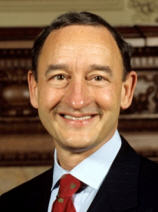
SIU–Edwardsville Chancellor
Vaughn Vandegrift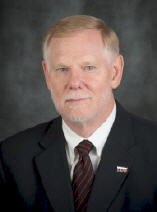
...and hey, it’s VP of James S McDonnell Foundation
Susan Fitzpatrick
- More dignitaries
In addition to our ACS President, Nancy Jackson, and President-elect Bassam Shakhashiri (both introduced above), we are privileged to have three other ACS Board of Directors members with us: George Bodner, Director, District II; Peter Dorhout, Director, District V; and Marinda Li Wu, Director-at-Large.
Please seek them out during the meeting, especially during the coffee breaks, poster sessions, and receptions, to share your ideas, concerns, and comments. They are here to listen and respond to you, to take your ideas, and to make things happen!
District II Director
George Bodner
District V Director
Peter Dorhout
Director-at-Large
Marinda Li Wu
- Midwest Board breakfast
- Friday, October 21st, 7–8 am, in the Matterhorn Room